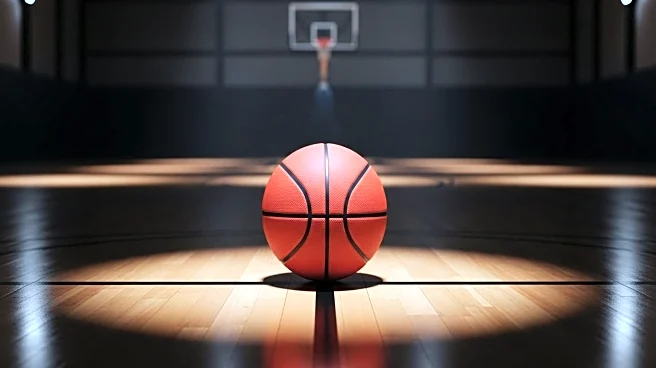What's Happening?
Jayson Tatum, a prominent NBA player for the Boston Celtics, has been appointed as the Chief Basketball Officer at Duke University, his alma mater. This new role was created specifically for Tatum, who is currently recovering from a ruptured Achilles tendon sustained during the playoffs. Despite his injury, Tatum is expected to contribute significantly to Duke's basketball program by sharing his expertise with coach Jon Scheyer and the team. His responsibilities will include providing guidance on basketball development, leadership, and life as a successful athlete. Tatum's involvement is anticipated to be more consultative, allowing him to focus on his rehabilitation while still engaging with the college basketball community.
Why It's Important?
Tatum's appointment is significant as it bridges professional and collegiate basketball, offering Duke players access to insights from a seasoned NBA All-Star. This move could enhance the development of Duke's players, potentially improving their performance and prospects in professional basketball. For Tatum, this role provides an opportunity to remain connected to the sport during his recovery, maintaining his influence and presence in the basketball world. The collaboration between Tatum and Duke could set a precedent for other professional athletes to engage with collegiate programs, fostering a deeper connection between the two levels of the sport.
What's Next?
As Tatum continues his recovery, his involvement with Duke will likely evolve, potentially expanding his role within the program. The Celtics are hopeful for his return during the 2025-26 NBA season, which could coincide with his contributions to Duke. The success of this partnership may encourage other universities to create similar roles for professional athletes, enhancing their programs and providing athletes with new avenues for engagement. Stakeholders in both collegiate and professional basketball will be watching closely to see how this unique arrangement unfolds.
Beyond the Headlines
This development highlights the growing trend of professional athletes taking on roles in educational institutions, which can have broader implications for sports management and athlete career transitions. It raises questions about the balance between professional commitments and educational contributions, and how athletes can leverage their experience to impact future generations. The ethical considerations of such roles, including the influence of professional sports on college athletics, may also come under scrutiny.









